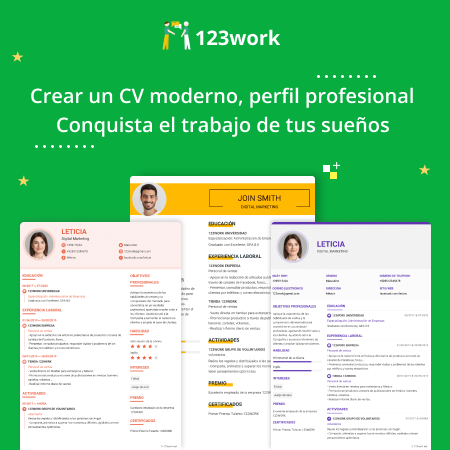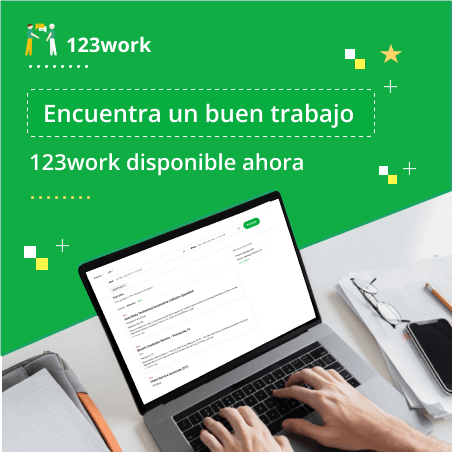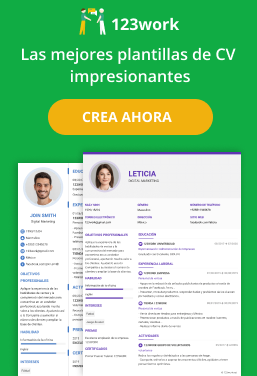OBJECTIVES OF THE PROGRAMME
The mission of WHO’s Health Emergencies Programme (The Programme) is to help countries, and to coordinator international action, to prevent, prepare for, detect, rapidly respond to, and recover from outbreaks and emergencies.
DESCRIPTION OF DUTIES
The incumbent will perform the following, and other related responsibilities as required by the needs of the office:
1.Lead and manage WHO's emergency response program at national or subnational level;
2.Advise the health authorities and partners on the establishment/strengthening of an Emergency Management System /Emergency Operation Centre (IMS/EOC) for multi-sectoral emergency response that includes staffing, defined roles/responsibilities and resources for key functional areas. Support the regular testing of the emergency response system through functional exercises at the national and local levels.
3.Coordinate the development, distribution and use of Standard Operations Procedures (SOPs) for IMS functions and field activities to manage priority risks (including enhanced surveillance, investigation and rapid response, contact tracing, sampling, infection prevention and control, outbreak vaccination, etc.).
4.Provide technical guidance to the Ministry of Health (MoH) on the establishment and strengthening of an Emergency Management System /Public Health Emergency Operation Centre (IMS/PHEOC) for multi-sectoral emergency management that includes staffing, defined roles/responsibilities and resources for key functional areas.
5.Oversee the management and distribution of national medical stockpiles through stockpile management systems.
6.Coordinate all aspects of the emergency programme, at the country level, to ensure the concerted approach of WHO in the areas of emergency information management, Country preparedness and International Health Regulations (2005), risk assessments and Infectious hazard management.
7.Support national and local health authorities, partner with UN agencies, international, governmental and nongovernmental organizations/institutions, to:
oStrengthen the national capability to prepare and respond to health emergencies from all hazards, ensure the required national procedures, skills, coordination mechanisms and health systems are strengthened to manage identified risks.
oAssess and map existing and emerging health risks in the country and prepare a national risk profile based on a risk assessment.
oAssess health needs of affected populations in cooperation with technical units at RO and HQ level
oAssess capacities for emergency management, including preparedness, and develop a national Health Emergency Response Plan.
oReview the National Health Plan /National Health Emergency Response Plan as needed, take additional action, including the development of contingency plans for specific high priority risks.
oMobilize and coordinate resources, oversee the operational and strategic planning of the health response plans, identify resource needs and funding gaps; encourage donors to fund the overall health sector response to affected populations.
8.Represent WHO to external stakeholders, including donors and partners, with respect to the country operations. Coordinate with other agencies and I/NGOs through the Health Sector approach and directly as operational implementing partner.
9.Lead the planning, formulation, implementation, monitoring and evaluation of strategies, operational and HR plans for the WHO's overall emergency preparedness, response and recovery activities. Manage sensitive issues arising from the emergency.
10.Oversee the development of a detailed task-based work plan and budget for implementation of priority activities identified in the National Health Emergency Response Plan. Ensure the country has accessible contingency funds for immediate response to emergencies, including, outbreaks at national and other appropriate sites.
11.Determine staffing needs, ensure the mobilization of the required human resources. Provide leadership, motivation, guidance, and performance management of staff and experts. Take concrete measures to ensure the safety and wellbeing of all WHO responders.
12.In cooperation with other levels of response authorize the release of related information, communications, advocacy products and statements to internal and external partners as well as to the public.
13.Monitor and provide guidance and briefings to senior and elected officials as required, on the progress and implementation of preparedness and operational readiness activities in alignment with the national action plan and throughout the full cycle of the emergency, including financial and implementation tracking, and output/impact monitoring.
14.Prepare progress reports, briefings, proposals, communications and advocacy documents required for strategic decision-making.
15.Prepare needed speeches, press releases, social media posts, donor visibility materials, and other documents related to health emergencies programme events.
REQUIRED QUALIFICATIONS
Education
Essential: Advanced university degree (Master’s level or above) in medicine, public health, health policy, health systems management or another relevant field.
Desirable: Master's degree in public health or health management and postgraduate qualification (s) in the areas of management, emergency, humanitarian, disaster management or related field from an accredited/recognized institute.
Experience
Essential:
• At least seven years of related experience, with international exposure, in emergency management and operations, with proven experience in emergency response and outbreak response.
• Substantial experience in managing humanitarian program cycles, capacity-building and multisectoral coordination. Substantial experience in efficient human and financial resource management, as well as managing and coordinating field-based projects.
• A minimum of four years is required in a governmental institution or international organization serving either (i) resource-limited countries or (ii) middle-income countries.
Desirable:
• Relevant work experience in outbreaks and/Health Emergency management and related strategy development with WHO and/or UN agencies, health cluster partners; experience working in relevant nongovernmental or humanitarian organizations.
Skills
• Demonstrated knowledge of the rapid response operations and their implementation in emergencies as related to public health, complemented by demonstrated ability to identify and manage difficult situations, to lead and direct multidisciplinary and multinational staff
• Excellent skills in the assessment, monitoring, analysis and evaluation of emergency situations, with the ability to conceptualize and implement innovative strategies and advocate their implementation
• Authoritative and comprehensive knowledge of the theory, principles, methods and techniques in international emergency incident management system.
WHO Competencies
- Teamwork
- Respecting and promoting individual and cultural differences
- Communication
- Building and promoting partnerships across the organization and beyond
- Ensuring the effective use of resources
·Creating an empowering and motivating environment
Use of Language Skills
Essential: Excellent knowledge of English.
Desirable: Working knowledge of a WHO official language would be an asset
Other Skills (e.g. IT)
Proficiency in computers and office software packages, handling of web-based management systems, Enterprise Resource Planning (ERP) systems and Cloud Management Enterprise System such as Workday.
REMUNERATION
WHO salaries for staff in the Professional category are calculated in US dollars. The remuneration for the above position comprises an annual base salary starting at USD 77,326 (subject to mandatory deductions for pension contributions and health insurance, as applicable), a variable post adjustment, which reflects the cost of living in a particular duty station, and currently amounts to USD 2,306.89 per month for the duty station indicated above. Other benefits include 30 days of annual leave, allowances for dependent family members, home leave, and an education grant for dependent children.
ADDITIONAL INFORMATION
- This vacancy notice may be used to fill other similar positions at the same grade level.
- Interested candidates are strongly encouraged to apply on-line through Stellis. For assessment of your application, please ensure that:
1 -Your profile on Stellis is properly completed and updated.
2- All required details regarding your qualifications, education, training and experience are provided under relevant sections.
3- Your experience records are properly entered with elaboration on tasks performed at the time. - Enhanced WHO Global Competency Model:
https://www.who.int/publications/m/item/enhanced-who-global-competency-model
- Only candidates under serious consideration will be contacted.
- A written test may be used as a form of screening.
- In the event that your candidature is retained for an interview, you will be required to provide, in advance, a scanned copy of the degree(s)/diploma(s)/certificate(s) required for this position. WHO only considers higher educational qualifications obtained from an institution accredited/recognized in the World Higher Education Database (WHED), a list updated by the International Association of Universities (IAU)/United Nations Educational, Scientific and Cultural Organization (UNESCO). The list can be accessed through the link: http://www.whed.net/. Some professional certificates may not appear in the WHED and will require individual review.
- Any appointment/extension of appointment is subject to WHO Staff Regulations, Staff Rules and Manual.
- Staff members in other duty stations are encouraged to apply.
- For information on WHO's operations please visit: http://www.who.int.
- WHO is committed to workforce diversity.
- WHO prides itself on a workforce that adheres to the highest ethical and professional standards and that is committed to put the WHO Values Charter into practice.
- WHO has zero tolerance towards sexual exploitation and abuse (SEA), sexual harassment and other types of abusive conduct (i.e., discrimination, abuse of authority and harassment). All members of the WHO workforce have a role to play in promoting a safe and respectful workplace and should report to WHO any actual or suspected cases of SEA, sexual harassment and other types of abusive conduct. To ensure that individuals with a substantiated history of SEA, sexual harassment or other types of abusive conduct are not hired by the Organization, WHO will conduct a background verification of final candidates.
- WHO has a smoke-free environment and does not recruit smokers or users of any form of tobacco.
- WHO has a mobility policy which can be found at the following link: http://www.who.int/employment/en/. Candidates appointed to an international post with WHO are subject to mobility and may be assigned to any activity or duty station of the Organization throughout the world.
- Applications from women and from nationals of non and underrepresented Member States are particularly encouraged.
.


